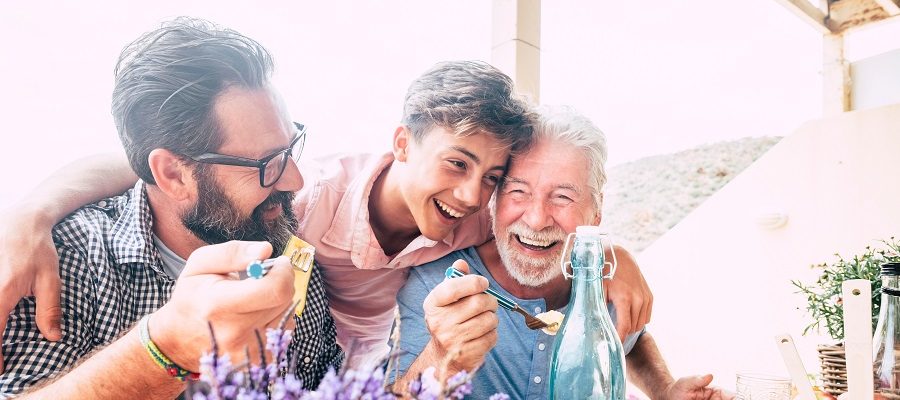What I miss most about not living in isolation is talking to my friends and family face to face rather than through technology. Next, I miss the places where I once met with friends and family. Nine times out of ten, we gathered together in restaurants or cafés, or even the local McDonald’s for coffee or the simple treat of a vanilla ice cream cone.
For many of us over the age of 65, and with underlying conditions, opening up the province of Ontario to stage 2, or later to stage 3, hasn’t affected us at all. It’s not that we don’t want to enjoy lunch on a patio or to go shopping. It’s become too dangerous for us to join in. Where I live in Oakville, Ontario, the ordinance to wear masks inside wasn’t passed by city council until July 8. That left me, and most of my friends, stuck for places to mingle, unless we’re out for a walk, and even outside the 2-metre rule for social distancing is often ignored.
With each week of self-imposed isolation, I’ve come to realize how central restaurants are to my daily life, and daresay, to my well-being, let alone the joy of partaking in delicious food, which is, in and of itself a wondrous experience.
Now, I’m beginning to grow anxious about the very existence of beloved restaurants, which up until this pandemic were a cornerstone of society. In a recent article in the New Yorker magazine, Anna Wiener writes about moveable, impermanent restaurants assembled in trailers and mounted on parking lots. “Over the past few years, delivery has been on the upswing, and delivery-only kitchens—referred to as “ghost kitchens” or “dark kitchens”—are having a moment,” she says. One company, Reef Technology, a start-up based in Miami, creates “thriving hubs for the on-demand economy by re-imagining the common parking lot.”
According to Wiener, Reef Technology operates kitchens across eighteen cities in the United States, in seventy-odd parking lots. In the trailer on Mission Street in San Francisco, meals from all six of its advertised restaurants are prepared on-site—the culinary equivalent of a multicolour retractable pen. The restaurants are “internal” to Reef: designed and staffed by its employees, with menus developed by a culinary team. The menus lean toward comfort food, and are a little arbitrary. Wings & Things offers mozzarella sticks, chicken tenders, cronuts (“dusted with cinnamon maple sugar and served with a side of Canadian Maple dipping sauce”), Skittles, Red Bull, and two kinds of Greek-yogurt bowls.
“By bringing in utilities like electricity, gas, and water, and setting up ‘proprietary containers’, the company hopes to turn parking lots into reconfigurable community hubs. Lots might be formatted to include mobile kitchens, beer gardens, retail pop-ups, vertical farms, auto-body shops, medical services, rental stations for electric vehicles, and so on. We have these pods, which arguably are not pretty, but they’re functional. They can support any kind of application,” Ari Ojalvo, the C.E.O. of Reef, told me.
“Every night, Reef’s trailers, which are managed under a subsidiary, Vessel CA, return to the commissary, where the gray-water tanks are drained, the potable-water tanks are refilled, and the refrigerators are restocked. Reef has ambitions to offer fresher, more sophisticated fare, eventually. But, for now, customers may find themselves paying a premium for meals similar to those found at a fast-food restaurant, or in a supermarket freezer.”
I can certainly understand how “ghost kitchens” such as these would appeal to a younger generation in a hurry. Still, I must admit that they couldn’t fill the void left by actually sitting down in a restaurant to enjoy a meal served on plates with cloth napkins and perhaps a lit candle or two for extra atmosphere. Picking up my dinner at a trailer in a parking lot just doesn’t do it for me.
Instead, it gets me thinking about the Parisian cafés where Jean-Paul Sartre and Simone de Beauvoir perched at their table near the Left Bank, sipped wine and argued about the meaning of existentialism. I can’t imagine either of them racing to the corner parking lot to grab a carton of chicken wings washed down with two cans of Red Bull.
Or I find myself considering the famous cafes of pre-World War II Vienna where Sigmund Freud’s brilliant conversations were fuelled by Sachertorte and coffee topped with whipped cream.
In mid-town Manhattan, in June 1919, the Algonquin Hotel became the site of the daily meetings of the Algonquin Round Table. Over drinks and lunch, a group of journalists, authors, publicists and actors gathered to exchange witty remarks in the main dining room. The group met almost daily for the better part of ten years. Some of the core members of this group included Franklin P. Adams, Robert Benchley, Heywood Broun, Marc Connelly, Jane Grant, Ruth Hale, George S. Kaufman, Harpo Marx, Dorothy Parker, Harold Ross, Robert E. Sherwood and Alexander Woollcott.
When I first moved to Toronto in the late 1970s, the place to be seen for writers and publishers was the Roof Lounge at the Park Plaza Hotel on Bloor Street at Avenue Road. Once I regularly began meeting colleagues on the Roof for drinks, I believed I’d become a small part of Canada’s flourishing literary scene. It was there that I interviewed novelists Hugh MacLennan and Mordecai Richler. It was there that I learned to order my favourite drink, a drink I still prefer, even if I do mix an inferior version in my own kitchen these days. In 2017 the Roof closed after 82 years of service.
This summer, my husband and I often order dinner from our favourite restaurants. We pay by credit card on the telephone. Ring the establishment when we arrive curbside and place the packaged dinner in the trunk of our car. Although I hesitate to admit it, sometimes we eat in front of the television. The food is excellent, but without the bling and buzz of a good restaurant, the attention of an accomplished waiter, without the sparkle and shine of the glasses and cutlery and the flickering candlelight, it’s not the same.
When this plague ends, and it will someday, I vow to eat in “real” restaurants as often as is humanly possible. I don’t believe I’ll ever forget how much I missed dining out during the pandemic of 2020. Being in restaurants is as much a sign of civility as saying please and thank-you. I can’t wait for it to return.
































